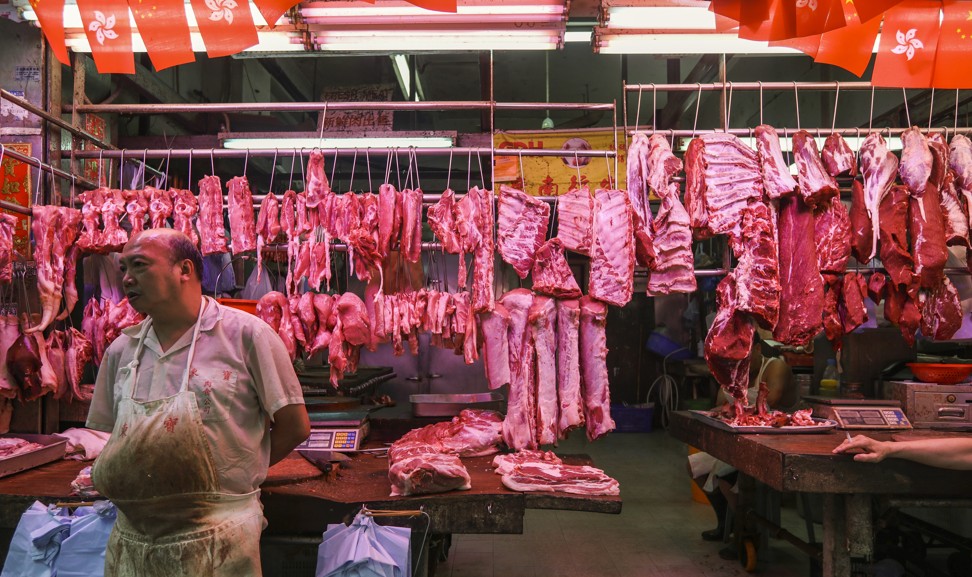
Nearly 20 mainland Chinese pig farms cut supplies to Hong Kong and Macau as African swine fever spreads
- Agriculture ministry reports new outbreak in Guangdong city of Huizhou
- It was the third reported in the province in just a week
Almost 20 mainland Chinese pig farms have suspended supplies to Hong Kong and Macau, as the African swine fever outbreak continues to spread north of the border.
But industry insiders said pork prices in the city were unlikely to rise during the festive period.
The mainland has reported at least 92 outbreaks of the fever – a viral infection which cannot pass to humans – at farms since it was first detected in Liaoning province in early August. Cases were reported in 23 provinces or regions, resulting in a cull of more than 630,000 pigs, according to the China News Service, a state news agency.
And on Tuesday, the national General Administration of Customs revealed that 18 of 154 mainland farms that provide pigs to Hong Kong and Macau had stopped sending their animals across the border.
Four of 17 affected farms in Guangdong province halted supplies because they were within the infected area. The rest were near contaminated zones. One other affected farm was in Hubei province.
The rise in cases came as China’s agriculture ministry reported a new outbreak of African swine fever in the Guangdong city of Huizhou, which had killed 11 pigs on a farm of 90.

The outbreak was the third reported in the province in just a week.
A government spokeswoman said the farm in the Huizhou case was not licensed to provide pigs to Hong Kong, and that by Tuesday no farm supplying the city had reported an infection.
About 3,500 to 4,000 live pigs are supplied from the mainland to Hong Kong daily. By Tuesday night there had been no cases of the virus in the city.
Yet, local officials were stepping up preventive measures, for example by banning farmers from feeding swill of animal origin to pigs, and improving hygiene at farms.
Lam Wing-yuen, vice-chairman at the Hong Kong Livestock Industry Association, expected prices for pork in the city to remain flat in the following week, despite the suspension, because the recent pork supply had been steady.
He also noted that during the Christmas and new year consumer demand for fresh pork dipped.
“This holiday is a bit long and residents may go out more, so the business for local wet markets is not that ideal,” he said.
Hui Wai-kin, secretary general of the Pork Traders General Association of Hong Kong, said there were still a lot of mainland pig farms which could send livestock to the city, and the impact would be minimal during the holidays.
He agreed with Lam that demand for the meat was seasonally low.
“It has been a big holiday. Drawing from experience in the past, business for the sector around the holidays will be quieter,” he said.
Hui said sales of pork had dropped 20 to 30 per cent recently, because of consumer concerns about the disease, coupled with seasonal effects.
But he said that if the supply was not stable after the holidays, then pork prices in the markets would increase.
“Never mind. I believe it would just last for a short period of time,” he said.

